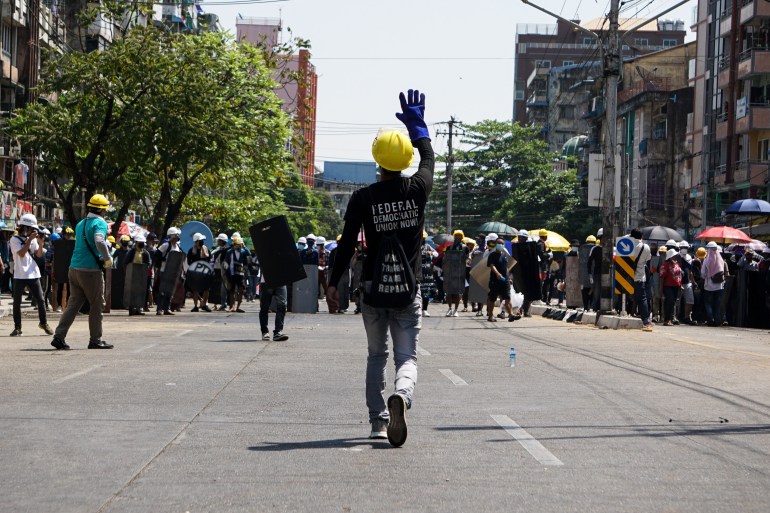On Thursday, Washington announced the imposition of new sanctions on Myanmar, while international condemnation of the wave of "violence and repression" against protesters against the military coup escalated, after a day in which dozens were killed by security bullets.
The US Department of Commerce said - in a statement - that it had imposed "new restrictions on exports" to Myanmar, and included on the US blacklist the ministries of defense and interior "responsible for the coup", in addition to "two commercial entities owned and managed by the Ministry of Defense."
The statement indicated that Washington, under the new sanctions, will impose increased control and harsher conditions on "sensitive" exports to Myanmar.
This new package of US sanctions comes at a time when the army's campaign against the protesters has escalated the coup that he carried out a month ago that overthrew the civilian government.
This is the third package of sanctions imposed by Washington on the military council that took power in a coup that toppled the civilian government of Aung San Sochi early last month.
The US State Department spokesman Ned Price warned yesterday in a tweet that the United States "will continue to take action against the military council" in Myanmar.
Large crowds marched peacefully in several cities in Myanmar (Anatolia)
For its part, the Myanmar embassy in Washington condemned the killing of opponents who rejected the coup, and stated - in a statement yesterday - that "our embassy is very sad about the killing of civilians who demonstrated peacefully to reject the military coup, and it refuses to use force that leads to death."
Singapore also advised its citizens to leave Myanmar, and its Ministry of Foreign Affairs said in a statement, "In light of the rapid escalation in clashes between protesters and security forces, and the increasing number of civilian casualties, it is strongly advised to avoid all types of travel to Myanmar at this time."
Bloody day
Thirty-eight demonstrators who condemned the coup were killed and others were injured in the demonstrations before yesterday at the hands of the security forces, which continue to fire live bullets, a daily number that is much higher compared to 23 believed to have been killed as of the beginning of this month.
Witnesses said that large crowds marched peacefully in other places, including Mandalay (the second largest city in Myanmar), and in the historic city of Bagan, where hundreds marched carrying pictures of Chancellor Aung San Sochi, and a sign reading "Free our leader."
Yesterday, the UN Special Envoy for Myanmar, Switzerland, Christine Schraner Burgener, called on UN member states to impose "strong" sanctions on Myanmar.
It is reported that at the beginning of last month, the army carried out a coup, arrested the country's president, state advisor Aung San Sochi and a number of senior officials, and declared a state of emergency for a year, ending a period in which civilian rule prevailed for a period of 10 years.
Since the military coup, the country has witnessed a wave of anger and defiance from hundreds of thousands of demonstrators who are constantly gathering to demand the release of Sochi and the return of democracy.

